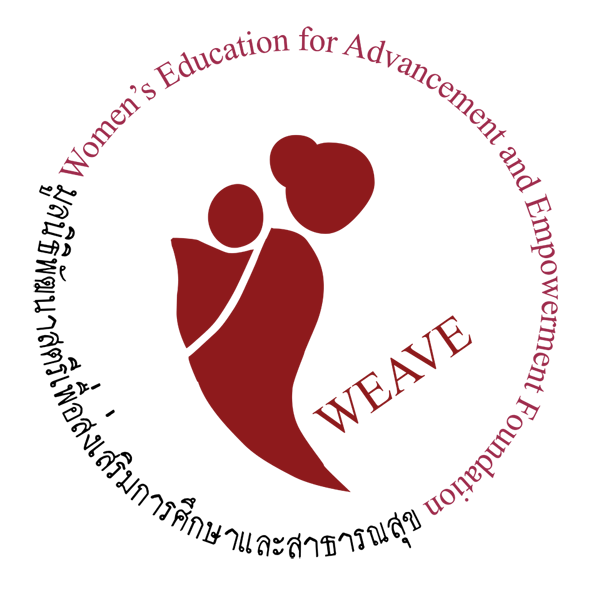 Naw Paw Sher was 12 years old when she arrived at her first refugee camp. It was 1992 and she longed for her village in Karen State. Her mother died when she was young and she lived with her aunt. She loved her village, but the Burmese military, continuing one of the longest civil wars in history, was a constant threat. Her aunt found safety in a refugee camp on the Thai-Burma border and came back for Naw Paw Sher.
Naw Paw Sher was 12 years old when she arrived at her first refugee camp. It was 1992 and she longed for her village in Karen State. Her mother died when she was young and she lived with her aunt. She loved her village, but the Burmese military, continuing one of the longest civil wars in history, was a constant threat. Her aunt found safety in a refugee camp on the Thai-Burma border and came back for Naw Paw Sher.
They spent three days walking to the camp, sleeping in the jungle each night. They managed to find food along the road but it was a terrifying experience. They had heard frequent reports along the way that their enemy was up the road, waiting for them.
When they reached the first camp, Naw Paw Sher was happy because she had food and didn’t need to be afraid anymore – her family was safe.
That sense of security ended in 1995 when their camp was attacked. She and the rest of the camp were finally relocated to a new camp, about two hours from the border town of Mae Sot, along with her husband and elder daughter.
Although life was more settled in the mountainous Umpiem Mai, living in the camp conditions was difficult. She said, “I wanted to buy good food for my family- more nutritious food”. Food rations vary from camp to camp, but refugees typically receive rice, flour, beans, dried chilies, cooking oil and salt. Meat, vegetables and fruit cost extra. So do sweets and snacks.
When Naw Paw Sher heard about WEAVE’s Income Generation Project (IGP), she saw a way to get more nutritious food for her family and earn valuable income for other needs. IGP began in 1996 to provide refugee women with the opportunity to work toward economic self-reliance, teaching skills and providing support to make traditional handicrafts for fair trade wages. In the project, women can earn income safely inside refugee camps, while taking care of their families.
WEAVE builds on the existing skills of the ethnic women in weaving and embroidery to help them fit market demands. Before Naw Paw Sher began, she didn’t have any skills in sewing, weaving or embroidery. So she “learned from the aunties” and loves embroidery “because it is beautiful and not difficult to do,” she said.
If she wasn’t involved with WEAVE’s IGP, she would have very few job options. Some refugees leave camp to do day labor on nearby Thai farms, work that is neither approved by the Thai government nor protected by labor laws. Others raise livestock like pigs and chickens. However, this does not earn much income and is merely a money-saving measure because of the limited space for livestock in the cramped camp conditions.
Now a Quality Control leader, she likes to work with other women and “enjoys the group spirit”. Plus she can balance her family life, cooking in the early morning, preparing breakfast for her children, then starting work on products. She is teaching her daughters, now aged 13 and 11, how to do embroidery, passing on income-generating skills for their future.
In IGP there is the added benefit for women to increase their confidence and pride in sharing their unique Karen culture. She thinks IGP products are special because they are “handmade and very beautiful- the quality!” she emphasized. “When customers see products, they know more about Karen people,” and the struggles of Karen refugee women.
As for the future, Naw Paw Sher doesn’t think she and her family can return to Burma. Instead they will wait to be resettled in a third country.
Waiting seems to be part of life for Naw Paw Sher and many other displaced persons, first as a 12 year old girl waiting in the jungle for safety, and now as a mother of two biding her time for a more permanent living solution. Yet as an artisan in WEAVE’s Income Generation Project making her own income in her home business, she needn’t wait idly, but can actively build skills and confidence toward economic self-reliance for herself and her family.
About WEAVE (Women’s Education for Advancement and Empowerment)
Founded in 1990, WEAVE is a non-profit organization that helps and supports the needs of marginalized women along the Thai-Burma border. WEAVE advances the status of women and children to become socially, economically and politically empowered. Through programs for education and capacity development, WEAVE’s goal is to elevate women and children from poverty and vulnerability, to self-sufficiency and hope. www.weave-women.org
Names and some other identifying details have been changed to protect identities.
(By Sarah Matsushita)
